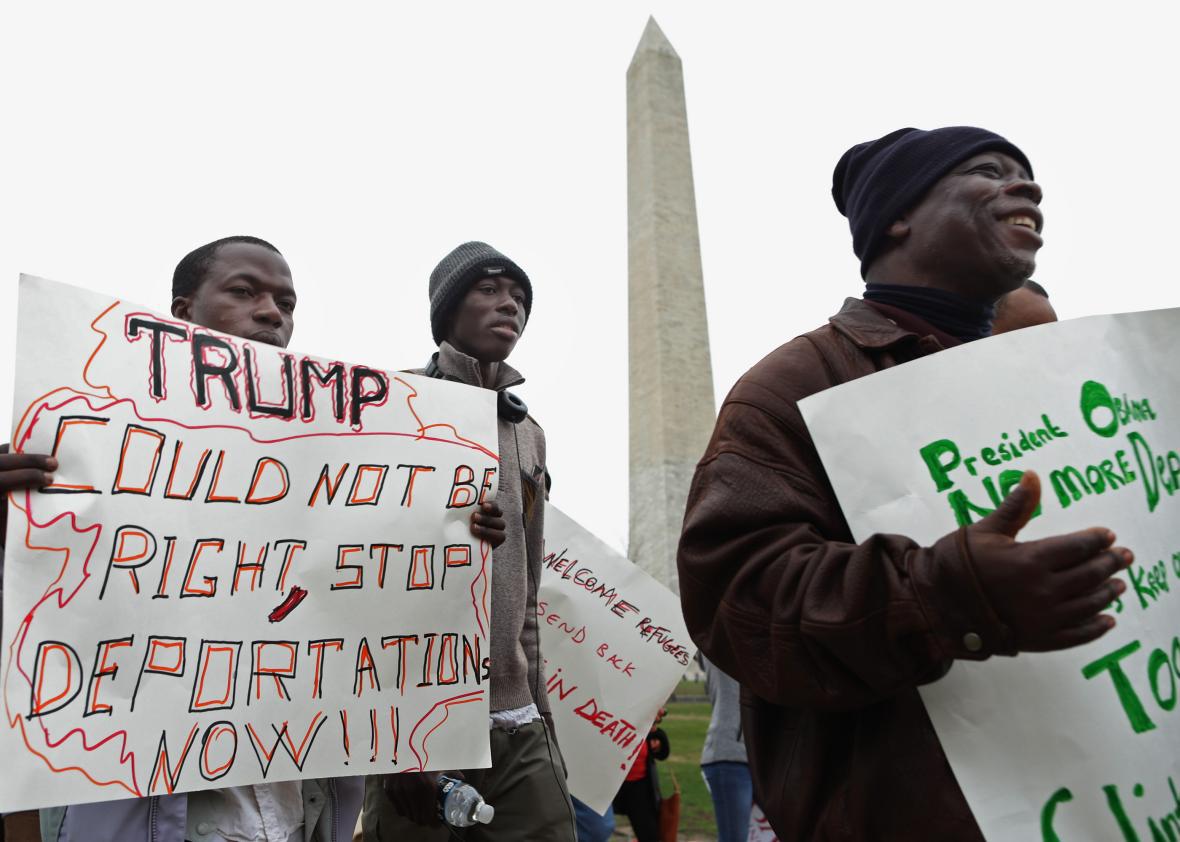I would like to go back to Walter’s comment on the immigration decision. To remind you, here, in part, is what he said:
It is hard to know what to say about an immigration opinion affecting 4.3 million people that reads, in its entirety: “The judgment is affirmed by an equally divided Court.” Seldom have so many hopes been crushed by so few words. I am stunned and disappointed that not a single one of the conservative justices cast a vote to sustain the president’s immigration guidance, or at least to hold more modestly that Texas lacked legal standing to bring the challenge in the first place. The president’s action was not lawless as opponents argued. There are 11.3 million people in the United States who, for one reason or another, are deportable. The largest number that can be deported in any year, under the resources provided by Congress, is somewhere around 400,000. Congress has recognized this and has by statute imposed upon the secretary of Homeland Security the responsibility to establish “national immigration enforcement policies and priorities.” The secretary did just that in deferring deportation action against 4.3 million people, largely parents of U.S. citizens or lawful residents.
I do not think the decision will affect deportations. (“Removals” is the official term.) There are thought to be 10 or 11 million illegal immigrants in the United States. This, of course, is too large a number to conceive of deporting. It would not only require mobilizing the armed forces; it would shrink the American workforce by about 10 percent, which we can’t afford. In general, the immigration authorities leave noncriminal illegal immigrants alone. An exception is illegal immigrants stopped at the border and simply not let in. But that’s a small exception.
Obama has been a fierce deporter—why, I don’t know. (I don’t understand most of what Obama does.) I assume in response to the Texas decision he’ll just tell the Department of Homeland Security to go slow on deporting people. I don’t think there’s anything the courts or Congress can do about that.
I conducted a criminal trial recently, and one of the persons discussed in the trial (she was neither a defendant nor a witness) had come to the U.S. as a teenager on a visitor’s visa, not returned to her homeland when the visa expired, was arrested, ordered deported, and put in a detention facility from which she was bailed out. She was still living in the U.S., probably still illegal, address known to the government, and never bothered since her release on bail—more than 10 years ago.
As to Akhil’s points and to you, Dawn, I don’t doubt that law professors are frequently active outside the classroom and that their academic work sometimes addresses practical issues, but what I’d like to see is evidence of impact. Amicus briefs? Working for nonprofits? Blogging? “Speaking truth to power?” Absurd: speak all you want, professors, power doesn’t listen to the likes of you. And a musical is going to transform constitutional law? And as for digging into constitutional history, the farther back you go, the less you will find that has even the slightest relevance to today.
In other words, show me the professoriate’s accomplishments, not the activities or aspirations.
With all due respect Akhil, you are certainly a very smart and successful law professor, but have you succeeded in changing judicial behavior? Judicial appointments?
Dick Posner
